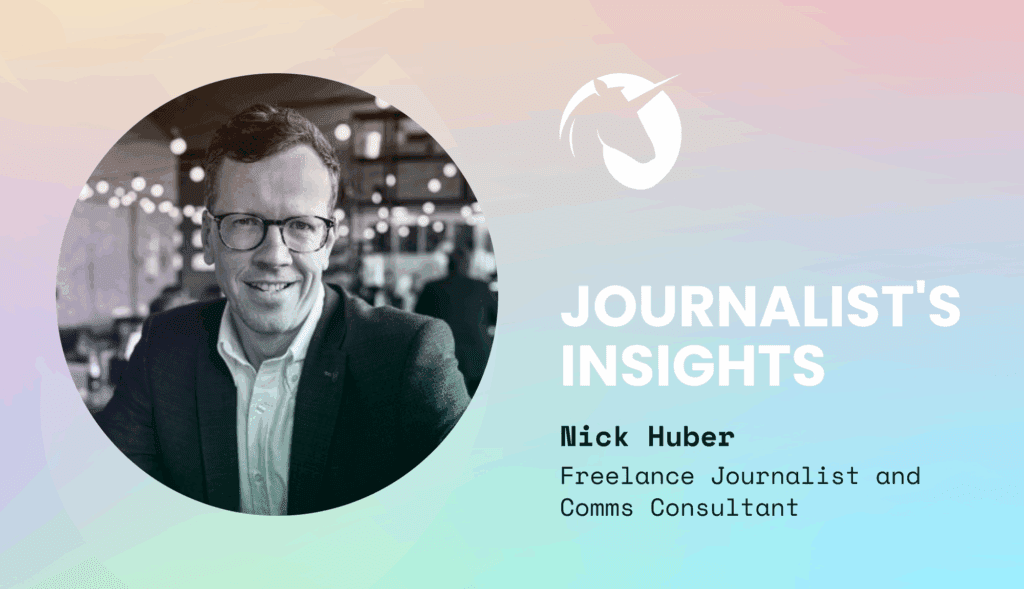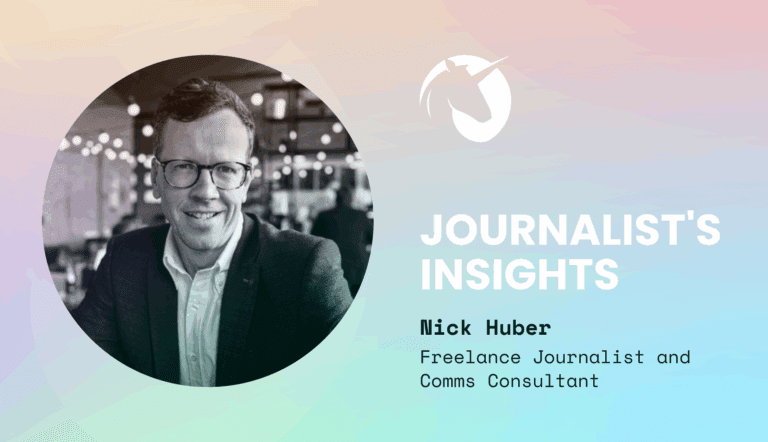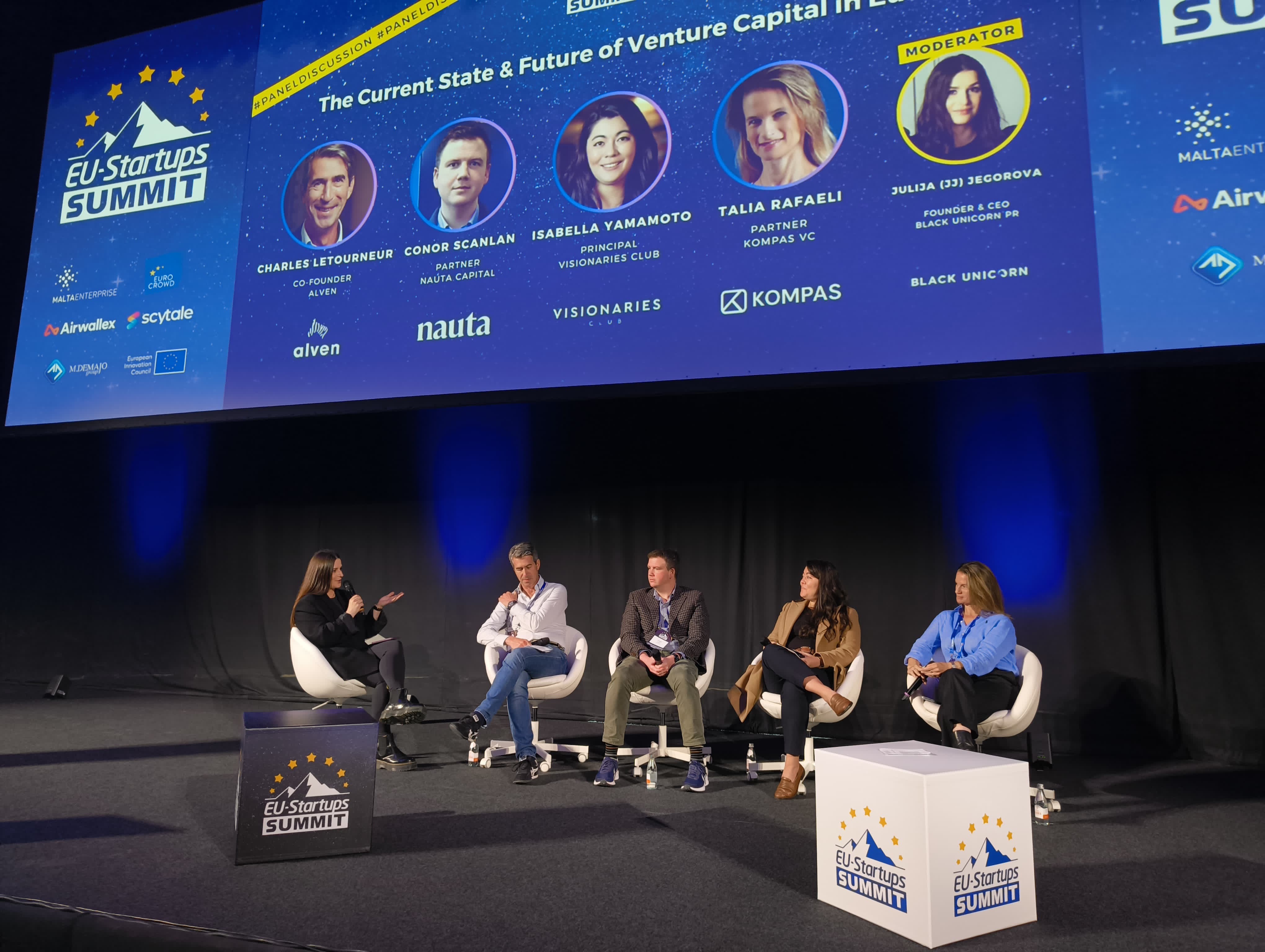Journalist’s Insights: What Financial Times Journalist Nick Huber Wants Every Startup Founder to Know About Comms
With more than 25 years of experience writing for the Financial Times, BBC, The Guardian, and dozens of trade publications, Nick Huber has a unique vantage point on the intersection between journalism and (startup) communications. Today, he splits his time between writing freelance pieces for top-tier outlets, especially the FT, and advising startups and PR agencies on how to communicate with more clarity, credibility, and impact.
He recently joined JJ and Mauro on The Runway Podcast to share hard-won lessons and candid advice for early-stage founders trying to navigate the often misunderstood world of media and PR.
What follows is a summary of the main insights he shared on the pod.
1 – Stop Treating PR Like a Black Box
One of the first points Nick makes is that too many founders treat PR as something mysterious, detached, and overly precious. They either outsource it and step away entirely, or overthink every word as if preparing for a hostile courtroom.
His advice? Relax. PR is not a black box or a high-stakes trial. It’s a conversation, and one that founders need to participate in. Being visible, accessible, and engaged in the comms process makes a real difference. For Nick, founders shouldn’t wait forever until they’re “ready” for the press. They should start by contributing meaningfully, even if they’re still early-stage.
As he puts it, “You’re not giving evidence in a multi-billion-dollar court case. Just say something useful, accurate, and interesting. Publish it, learn from it, and do it again.”
2 – The Same Old Mistakes (Yes, Even Now)
Despite two decades in the field, Nick still sees companies making the same mistakes over and over again. First among them is having wildly unrealistic expectations. Many founders, particularly in the tech space, believe that a minor software upgrade or vague product launch is enough to land them on the front page of the Financial Times. It isn’t.
He has a great football analogy for this: “You might play five-a-side once a week, but that doesn’t mean you’re ready to start at Anfield.”
Another common issue is a lack of clarity about what the company actually does. Too many startups lead with vague mission statements, lofty “whys,” or dense jargon, and fail to answer the most basic question: what is this company, and what does it offer? Don’t overthink it. Journalists want a straightforward answer, and none of that hypnosis by buzzwords.
Nick also flags the overuse of such buzzwords elsewhere, especially in thought leadership. Founders rush to talk about their values or purpose before grounding the message in reality. If your website or About Us page doesn’t clearly explain your product in two sentences, and in a language a 10-year-old could understand, you’re not ready for press.
3 – How Journalists Actually Think About Pitches
Nick clarifies what makes a pitch work for journalists. It’s not about clever hooks or long emails full of information. It’s about answering two essential questions: “So what?” and “Why now?”
A strong pitch doesn’t need to be perfectly polished. It just needs to be relevant, well-timed, and clearly thought through. Journalists don’t expect you to send them a finished article, but they do expect you to understand what matters to their readers. That means topical angles, original data, or a fresh take on a bigger trend.
Pitches that try to jump on every hype train, especially around AI, tend to fall flat. Nick notes that most companies are still early in their adoption of new technologies, and overpromising only erodes credibility. A realistic, well-researched story will always go further than generic marketing speak.
4 – You Don’t Have to Be Famous, But Be Useful
Startups often assume they need to be “a big deal” before trying to get press. Nick disagrees. You don’t have to be the headline, you just have to be helpful.
Being quoted as an expert, contributing a fresh perspective, or serving as a case study are all effective entry points to build media relationships. Start by contributing to trade publications or niche outlets, then work your way up to national or international media.
Commenting on relevant industry trends, explaining complex topics in plain language, or sharing hard-won founder lessons can all add value. In fact, Nick believes these kinds of contributions often make founders more interesting to journalists than the businesses they’re building.
5 – Make Yourself (Seriously) Easy to Contact
Nick’s biggest personal frustration? Startups that are impossible to get in touch with.
He recounts multiple instances where he wanted to feature a startup in an article. Sometimes for publications like the Financial Times. But he simply couldn’t reach them. Either their media contact was missing, the “Contact Us” form led to nowhere, or PR teams failed to follow up or canceled interviews last-minute.
It might seem like a minor oversight, but these missed opportunities add up. If you want to be seen as credible, you need to act the part — and that includes being reachable. Have clear press contact info on your site. Journalists want to know there is a press contact option, they would rather not use the info@ address. Be upfront about what topics your team can speak to. And don’t be the reason your company missed out on major earned coverage.
6 – Founders, You Need to Show Up
Some founders prefer to delegate comms entirely, assuming they can skip press opportunities until they’ve hit some arbitrary milestone or “go big” with a TED talk. Nick encourages a different mindset.
Founder involvement is key. Not only does it help build media relationships, it also helps clarify what the company stands for. Good comms has the side benefit of forcing founders to articulate their mission, strategy, and value proposition in sharper terms. Done well, it’s as much an internal exercise as an external one.
Nick notes that when founders finally do engage, they’re often better communicators than they expect to be. Passionate, insightful, and persuasive. But that only happens if they’re willing to get in the room.
7 – Comms Is a Long Game, So Treat It Like One
Above all, Nick reminds us that PR is about playing the long game. It’s not about landing one splashy piece of coverage. It’s about showing up consistently, contributing meaningfully, and building trust over time. With journalists, with readers, and with your wider ecosystem.
And in a noisy, competitive startup landscape, trust is still your most valuable asset.
Main Takeaways from Nick Huber
- Founders should get involved in PR, don’t just outsource and disappear
- Skip the buzzwords, clarify your “what,” and keep things human
- Journalists are asking: Why now? So what? Answer those, and you’re ahead
- You don’t need to be a unicorn to offer value: comment, contribute, connect
- Accessibility is non-negotiable: make it easy to reach you
- Good comms helps sharpen your strategy, not just your messaging
- Founder-led thought leadership builds credibility when done right
- Don’t overthink it. Say something useful. Press publish. Repeat.
🎧 Listen to the full episode of The Runway Podcast featuring Nick Huber:
Want more smart, no-BS insights from top journalists? Follow Black Unicorn PR for new episodes, expert blogs, and brutally useful content. For more about Nick Huber, click here.
Enjoyed the insights from Nick Huber? Check out the rest of our blog and our Journalist’s Insights series:
Startups, news and beyond with Stefano De Marzo of EU Startups
Mad about startups with David Johnson of Maddyness UK
Ioanna Lykiardopoulou from The Next Web
Startups, the Media and CEE with Zosia Wanat from Sifted
Busting Journalism Myths with Lindsay Dodgson from Business Insider
Diving into fintech journalism with Doug Mackenzie from Fintech Finance
Securing media placements during COVID-19 with Yessi Bello-Perez from The Next Web
From PR to Media With Remco Janssen of Silicon Canals
The importance of regional media for startups, with Anda Asere from Labs of Latvia



